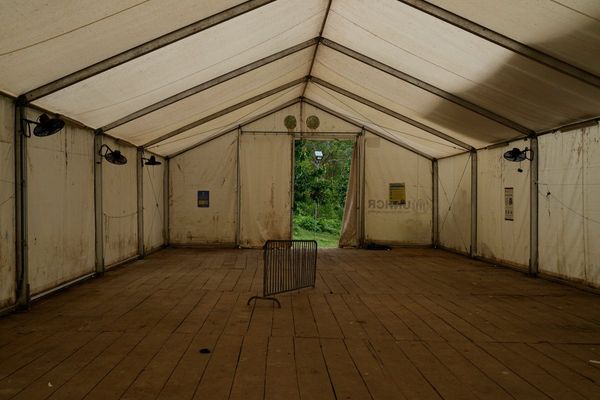
When the US Drug Enforcement Agency (DEA) announced last week that it intended to impose its strictest regulations on a drug that many claim can help treat opioid addiction, the public outcry was immediate.
“This hit us out of the blue,” said Susan Ash, the founder of the American Kratom Association. At the end of August, the DEA announced its intention to define kratom, a south-east Asian plant, and its active chemical components as a schedule I drug under the Controlled Substances Act, along with cannabis, heroin, and other drugs that are deemed to have a high potential for abuse and no recognized medical use.
“I’m hearing people that are terrified, literally scared to death of going back to old ways of life, whether that means living in chronic pain when nothing else has worked for them, dealing with PTSD, listening to all the people fearful that they’re going to go back on either prescribed or illicit opiates and possibly could die,” said Ash. “It’s very emotional.”
Russ Bayer of the DEA said the agency “made the determination after a review of some of the scientific and medical literature out in the world that kratom poses such an imminent threat”.
Kratom, which is botanically related to coffee, is currently not regulated at all and can be obtained through any number of companies on the internet or at health food or smoke shops. Some users say they would like it to be more strictly regulated – so they could be sure they are actually getting the plant and not other chemicals – but they think it is ridiculous to say it has no currently accepted medical usage.
Advocates say that the drug has prevented countless opioid-related deaths, but the fact that it activates opioid receptors has caused the DEA to miscategorize the active compounds – mitragynine and 7-hydroxymitragynine – as opioids. “They know it’s not an opioid and yet they call it an opioid because they knew they would get congressional support from all the congresspeople who are dealing with opioid epidemics in their own states.”
People also use it recreationally or to treat pain. Users say it helps everything from PTSD to menstrual cramps. In small doses, many people say kratom has a stimulant effect and even as the opiate effect increases with the dosage, many users manage it in such a way that it helps them get through the workday, instead of sending them out on the nod. Marion Winik, a Baltimore-based writer and professor, says she uses one spoonful early in the day, like tea, for work and doesn’t need to use it again. Other users say they take it throughout the day.
The DEA cites 660 emergency room calls over the last five years and 15 deaths related to kratom over the last two, but advocates insist that in all of those deaths there were other chemicals involved.
“There have been no direct deaths tied to kratom,” Ash said. “And we’ve had an expert toxicologist review reports and conclude that you cannot attribute kratom solely as the cause of death for anyone, anywhere.”
One 2008 study found that subjects who took kratom suffered seizure-like symptoms only after mixing it with another drug, modafinil, and found that it could mitigate opioid withdrawal.
Ash, a lobbyist, founded the American Kratom Association after the substance helped her beat an opioid addiction that started with a narcotics prescription.
After she went through a rehabilitation program, Ash says, a doctor said she would have to take subutex or suboxone, pharmaceuticals often used to treat opioid addiction, for the rest of her life. But those drugs are also narcotics and Ash realized “I was repeating the same old addict patterns with the subutex”.
She had used kratom to combat withdrawals when she feared running out of her monthly prescriptions, so she tried it again two years ago. “And literally within a two-week period of time, I was up and around and productive and so passionate about this that I started this organization. Whereas the last few years of my life had been largely bedridden and before that I was leaving the house only to see doctors; now I’m flying across the country advocating for this plant.”
The DEA acknowledges the public outcry, which resulted in a “We the People” petition to the White House that quickly gained 100,000 signatures.
Bayer, of the DEA, said he had received many calls from people who say they have used kratom to treat their opioid addiction.
“Or: ‘I’ve had chronic pain with the exception of the last year while I’ve been taking kratom.’ ‘I’ve had anxiety or posttraumatic stress disorder, I’m a U.S. military veteran, except for when I’ve taken kratom over the last several months.’ So we get that,” Bayer said.
Jag Davies of the Drug Policy Alliance called the DEA’s decision a reversion back to drug war policymaking.
“It’s really shocking that despite all the progress that’s been made toward treating drugs as a health issue instead of a criminal justice issue that still the politicians and policymakers go with knee-jerk prohibition,” said Davies. “Kratom is suffering the same fate as other medicinal plants that have been used for millennia in that there is no incentive for pharmaceutical companies to spend millions of dollars on research to get FDA approval ... There’s no good reason for people who are using kratom to be treated as criminals.”
The scheduling is temporary, but many people think it is unlikely to be reversed.
“It’s fairly unlikely that the DEA is going to change its mind, because it never does. They’re robots when it comes to prohibition,” Davies said.
Albert Garcia-Romeu, who was beginning research to conduct a kratom study at Johns Hopkins University says that the temporary scheduling is structured to create the conditions for keeping it illegal. “There will likely be a surge in adulterated kratom-like products being sold on the black market” and a corresponding “increase in poisonings and ER visits attributed to kratom, which will then solidify their stance keep it Schedule I”.







